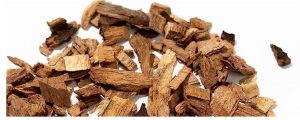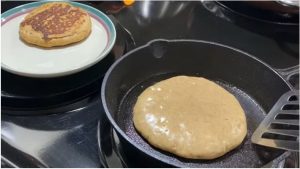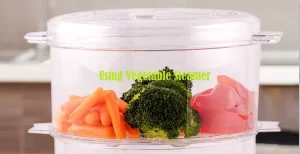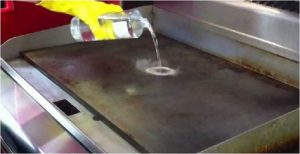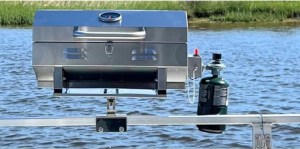Why Is My Water Heater Whistling? Troubleshoot Now!
Your water heater is whistling because of sediment buildup or high pressure in the tank. This can cause damage and potentially lead to a leak or other issues if not addressed promptly.
If you hear a whistling or hissing noise coming from your water heater, it could be a sign of a problem. One possible cause is a buildup of sediment or mineral deposits in the tank, which can create pressure and cause the whistling sound. Another potential cause is a faulty pressure relief valve, which can also create a hissing noise.
If you have a new water heater, the whistling sound could be due to air in the system, which should dissipate over time. In electric water heaters, a whistling or hissing noise could indicate a problem with the heating element or thermostat.
If you’re unsure about the cause of the noise, it’s best to contact a professional plumber to diagnose and address the issue.
What Causes Water Heaters To Whistle?
If you’ve ever heard a whistling noise coming from your water heater, you might be wondering what could be causing it. There are a few common reasons why your water heater is whistling, including overheating of the tank, sediment buildup, faulty valves or pressure regulators, and loose or damaged pipes.
Let’s take a closer look at each of these possible causes below.
1. Overheating Of The Water Tank
A water heater that is overheating can cause the tank to expand, leading to the whistling sound you’re hearing.
- The thermostat is set too high
- Faulty thermostat
- Malfunctioning heating element
To prevent your water heater from overheating, make sure the thermostat is set to the correct temperature, and consider having a professional check and replace any faulty parts.
2. Sediment Buildup In The Tank
Over time, sediment can build up in the bottom of the water heater tank, causing the heating element to work harder to heat the water. This extra work can cause the tank to overheat and lead to the whistling noise you’re hearing.
- Strange noises coming from the tank
- Water taking longer to heat up
- Rusty water coming out of the tap
To prevent sediment buildup, it’s important to flush your water heater regularly and have it maintained by a professional.
3. Faulty Valves Or Pressure Regulators
A faulty pressure regulator or relief valve can cause the water pressure in your water heater tank to become too high. This can lead to the tank overheating and the whistling sound you’re hearing.
- Whistling or hissing noises coming from the tank
- Water leaking from the tank
- Inconsistent water temperature
To fix this issue, it’s important to have a professional diagnose and replace any faulty valves or pressure regulators.
4. Loose Or Damaged Pipes
Loose or damaged pipes can cause whistling noises as water moves through them. This issue is often easiest to diagnose by checking the pipes leading to and from your water heater.
- Whistling or rattling noises coming from the tank area
- Water leaks near the pipes
- Inconsistent water pressure
To fix this issue, it’s important to have a professional evaluate and repair any loose or damaged pipes.
Whistling noises coming from your water heater can be caused by several different issues, including overheating, sediment buildup, faulty valves or pressure regulators, and loose or damaged pipes. It’s important to have a professional diagnose and fix any issues with your water heater to prevent future problems and ensure it’s running efficiently.

Consequences And Risks Of A Whistling Water Heater
Have you ever heard a high-pitched whistling noise from your water heater? It could be a sign of potential issues. In this section, we will discuss the consequences and risks of a whistling water heater, including fire hazards, explosion risks, water damage, and increased energy bills.
1. Fire Hazard Due To Overheating
When a water heater is overheating, it can cause the temperature and pressure relief valve to malfunction, leading to a fire hazard. The high temperature can also damage the tank, causing it to crack or burst and potentially start a fire.
To avoid this risk, regular maintenance and inspection of your water heater is critical. Checking the thermostat settings and valve can help prevent overheating and maintain a safe temperature.
2. Explosion Risk Due To Excessive Pressure
A whistling noise from your water heater could also indicate excessive pressure inside the tank. As the pressure builds up, there is a risk of a tank explosion, which can cause severe damage to your home and potentially harm people nearby.
To prevent this, it is essential to check the pressure relief valve regularly and schedule professional inspection and maintenance to prevent pressure buildup.
3. Potential Water Damage From Leaks
A whistling noise can also be a sign of leaks in your water heater. Leaking water can cause significant damage to your home, such as damaging your walls, floors, and ceilings and potentially leading to mold growth.
It is crucial to inspect your water heater for any leaks and promptly repair any identified issues to prevent water damage in your home.
4. Increased Energy Bills
A whistling water heater can also have negative consequences on your energy bills. If the water heater is not functioning correctly, it will require more energy to heat water, resulting in higher energy bills.
Regular inspection, cleaning, and maintenance of your water heater can ensure optimal efficiency and lower energy bills.
A whistling water heater can have severe consequences and pose significant risks. Regular maintenance and inspection of the water heater can prevent most of these issues. Don’t ignore a whistling noise from your water heater; contact a professional to ensure your safety and prevent any potential hazards.
A Guide To Fixing A Whistling Water Heater
Turning Off the Power And Water Supply
The first step is to turn off the power and water supply to the water heater.
- Locate the electrical panel in your home and turn off the circuit breaker for the water heater.
- Find the shutoff valve for the water heater and turn it off. This valve is usually located on the cold water supply pipe above the heater.
- Remember, safety is paramount. If you are unsure about how to turn off the power or water supply, ask for help from an experienced plumber.
Draining The Tank And Removing Sediment
The second step is to drain the tank and remove sediment build-up. Over time, minerals in the water will settle in the bottom of the tank and harden, causing a whistling sound.
- Connect a garden hose to the drain valve at the bottom of the water heater and run the hose outside or to a nearby drain.
- Open the drain valve and turn on the hot water faucet in one of your sinks to allow air into the tank and help the water drain faster.
- Once the tank is empty, close the drain valve, disconnect the hose, and open the cold water supply valve to flush more water through the tank.
- Repeat this process until the water runs clear.
Checking And Replacing Faulty Parts
The third step is to check for and replace any faulty parts, such as the temperature and pressure relief valve, gas control valve, or heating element.
- Check the temperature and pressure relief valve for signs of leaks or corrosion. If you notice any issues, turn off the water supply and replace the valve.
- If you have a gas water heater, check the gas control valve by following the manufacturer’s instructions. If it is faulty, replace it.
- For an electric water heater, check the heating elements by turning off the power and using a multimeter to test the resistance. If a heating element has no resistance, replace it.
Reassembling The Water Heater
The final step is to reassemble the water heater.
- Close the drain valve and remove the hose.
- Turn on the cold water supply valve and let the tank fill up before turning on the power supply and gas supply (if applicable).
- Once the tank is full, turn on the hot water faucet in one of your sinks to remove any air pockets.
- Check for any leaks around the water heater connections.
A whistling water heater can be fixed by following our step-by-step guide. Please remember that working on a water heater can be dangerous, so proceed with caution, turn off the power and water supply, and consult with a licensed professional if you are uncertain about any of the steps.
Professional Vs. Diy Repairs: Pros And Cons
Advantages Of Hiring A Professional Plumber
When you face a complex water heater issue, hiring a professional plumber is always the best solution.
- Experience and expertise: As professionals, they possess the necessary knowledge, skills, and experience to resolve any water heater issue accurately and efficiently.
- Professional equipment: Professional plumbers use specialized tools and equipment, ensuring the job gets done right the first time.
- Guaranteed work: A professional plumber offers a warranty on their work, giving you peace of mind and saving you unexpected expenses.
Cost Comparison Of Professional And Diy Repairs
One of the most significant factors when considering professional versus DIY is the cost.
- DIY repairs: DIY repairs can be less expensive, but that depends on the severity of the issue. If you make an error, you may cause further damage, leading to costly repairs.
- Professional repairs: Professional plumbers may seem more expensive. However, you’ll save money in the long run, preventing further damage, that you would’ve caused if you had done a DIY repair.
Risks And Disadvantages Of Diy Repairs
Performing DIY repairs is not always the best choice.
- Safety concerns: You’ll expose yourself to significant safety risks if you perform some repairs without appropriate safety gear and knowledge.
- No guarantee for quality: Poor workmanship can cause extensive damage, which you’ll have to pay for eventually.
- Time-consuming: Diy repairs take more time to complete, making them an inconvenience to your already busy life.
- Lack of proper tools: You may not have all the necessary tools required, leading to substandard workmanship and further damage.
Regular Maintenance Schedule For Water Heaters
Why is my water heater whistling: Is the regular maintenance schedule for water heaters
Have you noticed your water heater making a whistling noise? This high-pitched sound is often an indication of issues with your water heater, which could lead to significant problems in the future. Regular maintenance of your water heater is essential to keep it functioning smoothly and avoid unexpected repair costs.
We’ll discuss key maintenance tasks to help you keep your water heater in excellent condition.
Periodic Flushing To Remove Sediment Buildup
Over time, sediment buildup occurs inside the water heater tank, reducing its efficiency. Flushing the tank periodically will remove this sediment, prolonging the life of the water heater and maintaining its efficiency.
- Turn off the power supply to the water heater.
- Turn off the cold water supply valve to the heater.
- Open the hot water faucet in your house to allow air into the tank.
- Connect a garden hose to the drain valve at the bottom of the water heater tank.
- Open the drain valve and let the water drain completely.
- Turn on the cold water supply valve to the heater to flush out any remaining sediment.
- Once the water runs clear, close the drain valve, disconnect the garden hose, close the hot water faucet, and turn on the power supply.
Inspecting Valves, Pipes, And Other Parts
As water heaters age, leaks can occur, causing damage to your home. Regular inspection of valves, pipes, and other parts of the water heater can identify any issues before they escalate.
- Check valves for leaks or malfunctioning. The pressure relief valve is a critical safety feature that should function correctly.
- Check for leaking pipes, tank fittings, or connections.
- Inspect your water heater’s burner assembly and gas lines for damage or leaks if you have a gas-powered heater.
- Check the temperature and pressure relief valve to ensure it’s functioning correctly.
Replacing Old Or Damaged Parts
As the water heater ages, parts can wear out, become ineffective or even dangerous, and need replacement.
- Anode rod: This component attracts corrosive substances in the water, protecting your tank from rusting. Replacing it periodically can prolong the life of your water heater.
- Thermostat: This component regulates the temperature of the water inside the tank and may require replacement if defective.
- Heating element: If your water heater is electric, replacing the internal heating element(s) can ensure that it heats water efficiently.
- Burner assembly: For gas-powered water heaters, the burner assembly is critical as it heats the water inside the tank. If it’s malfunctioning, replacing it is necessary.
Upgrading To Energy-Efficient Models
Water heaters can account for up to 17% of a home’s energy use, making it essential to switch to energy-efficient models. Replacing your old water heater with an energy-efficient one can save you money on your energy bills, reduce wear and tear on your current unit, and improve your home’s energy efficiency.
Choose the right size and type of water heater for your household by consulting a professional to ensure optimal efficiency.
Regular water heater maintenance is essential to keep your water heater operating for years to come. Implementing a regular maintenance schedule for your water heater, flushing the tank, inspecting components, and replacing damaged parts, and upgrading to energy-efficient units as necessary can save you significant energy costs and prevent costly repairs in the future.
Contact a licensed technician if you need help with your water heater maintenance.
Additional Tips To Extend Water Heater Lifespan
A water heater is an essential appliance that makes life comfortable in cold weather. However, it is also one of the most ignored home appliances, which can lead to issues such as a whistling sound. Check out these additional tips to extend your water heater’s lifespan.
Adjusting The Water Temperature Settings
Adjusting the water temperature is a simple way to extend the lifespan of your water heater.
- You should aim for a temperature between 120 and 140 degrees Fahrenheit to prevent the buildup of harmful bacteria in your water.
- Adjust the temperature by turning the thermostat knob on the appliance. Typically, you can find the thermostat under a panel on the side of the water heater.
- If you have an electronic thermostat, you can change the temperature using the control panel.
Installing An Insulation Blanket
Insulating your water heater can also extend its lifespan.
- An insulation blanket is a simple and effective way to improve the efficiency of your water heater.
- You can buy an insulation blanket from your local home improvement store and install it yourself.
- Be sure to choose the right size for your appliance and follow the instructions carefully.
Maintaining Proper Water Pressure
Maintaining proper water pressure is another key to extending your water heater’s lifespan.
- Proper water pressure can prevent leaks and other issues that can shorten your water heater’s lifespan.
- You can check your water pressure using a pressure gauge and adjust it if necessary.
- If you’re not comfortable doing this yourself, contact a licensed plumber to help you.
Learn More: How Hot Does A Hot Plate Get?
Final Thoughts And Recommendations
Your water heater may be one of the most overlooked appliances in your home, and yet it’s one of the most essential. A malfunctioning water heater can lead to a host of problems, including leaks, damage to your home, and even safety hazards.
We’ve explored the possible reasons why your water heater is whistling. Now, let’s take a look at our final thoughts and recommendations on what you should do if you encounter this issue.
Read More: Why Does My Baseboard Heater Banging?
